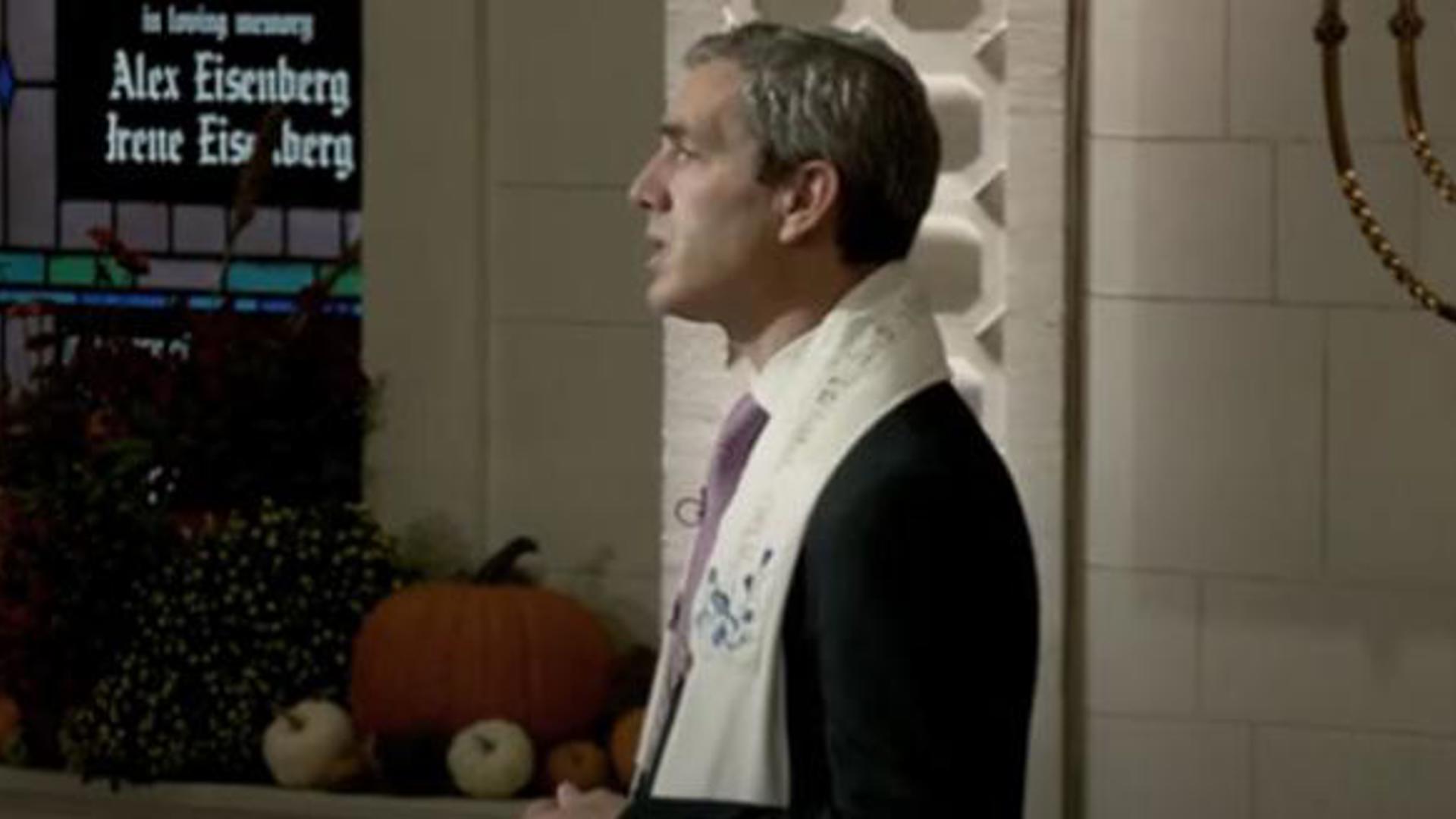
How shall we understand today’s Yizkor service?
So soon after Yizkor on Yom Kippur, Yizkor on the festival of Shemini Atzeret raises a host of curiosities and questions. First and foremost, there is the question of timing: Not two weeks have passed since we recalled our loved ones on Yom Kippur. There is no limit to the mitzvah of remembrance, but having another service for the same purpose, less than two weeks later, deserves inquiry.
Second, and perhaps more obviously, today is a happy day. Unlike Yom Kippur, dedicated to the theme of “Who will live and who will die?” tradition explains that today you shall be akh sameah, only joyous. How can it be that on a festival given over to joy, we set apart time to mourn the loss of loved ones?
Finally, there is the companion holiday to Shemini Atzeret – Simchat Torah, the festival marking the conclusion and re-commencement of the annual reading cycle. In Israel, these two holidays are celebrated as one. How are we to understand the confluence of celebrating the cycle of Torah reading with this moment of Yizkor? How are we to untangle all these questions and all these emotions in these few minutes given over to the memory of our loved ones?
I think the answer, or at least one possible answer, can be found in the final note on the final page of our Etz Hayyim humash, and I thank my colleague Rabbi Zuckerman for alerting me to the observation. The commentary explains that when we conclude the Torah, as we will tonight and tomorrow morning, our vision is directed both backward and forward. We go back to the opening words of Genesis and begin again, finding new insights on every page. We also go forward. The haftarah, the prophetic reading, for Simhat Torah is the first chapter of the book of Joshua – the continuing story of the Children of Israel following the death of Moses. To look back and to look forward is not just about our cycle of Torah reading; it is the emotional task of this moment. In just a few hours, we know, the holidays will be behind us, the year in full swing, school in session (hopefully), in a fall that is sure to be nonstop and with no turning back. But today? Today is a day to pause. That is actually what the Hebrew word atzeret means: to pause and to reflect. In the Rabbinic imagination, today is akin to the case of a king who held a great feast, and as it was coming to an end, aware that all the guests would soon take their leave to resume daily life, the king asked his dearest beloved friend to linger just a day longer, so they could enjoy the blessings of each other’s presence even as the future beckoned. The joy of today is meant to be exquisite because we know it doesn’t last; we know that soon enough tomorrow will be here.
And this, I believe, answers my first question, of why we have Yizkor today, so soon after the Yizkor of Yom Kippur. The people whom we remember today, we remember differently at different times; neither they nor our memories of them are static or one-dimensional. On Yom Kippur, we confronted the brute nature of their mortality and our own – a confrontation made all the more acute as we wrestled with themes of God’s justice and mercy. Today, the muscle of memory functions differently. Tomorrow beckons, but today . . . Today we linger with our loved ones – fathers and mothers, brothers and sisters, sons and daughters, husbands and wives. The loss is there and will always be. But today we reach for wisdom, for reflection, and, most of all, for gratitude. We look back at the story, the Torah, of their lives, to see the arc of their existence, to discover new insights and appreciation. As in the Torah itself, there are always new understandings. We are, after all, not the same people as we were at this time last year; we have changed and so have our memories. Perhaps at this moment of Yizkor, a more precise translation of akh sameah is not that one should be “only joyous,” but that we should be “joyous, nevertheless.” We have lost, but we can still appreciate. We are diminished, but we can still express gratitude for the blessings of our loved ones.
And it is that gratitude, I believe, that enables us to turn the page to a new chapter in our own lives. What better image could there be at this time than that of Joshua picking up the mantle after the death of Moses. Stepping forth with trepidation against the backdrop of loss. Moving forward, all the while carrying the presence of our loved ones with us each and every step? Lest we forget, when the children of Israel left Egypt, they carried the remains of the patriarch Joseph with them. When they entered the land of Israel, it was at Joshua’s direction that those remains were finally laid to rest. Each of us is but a chapter in a narrative that began long before our arrival in this world. And the measure our lives will be found in the extent to which the values we hold dear persist beyond the limits of our own years. Today is about looking back, and today is also about looking forward. The memories of Yizkor are not meant to be burdens weighing us down. The memories of Yizkor are guideposts directing our way forward.
How shall we understand today’s Yizkor service?
Maybe it is best understood as the pause we grant ourselves when, no matter how much we wish otherwise, we know this precious moment cannot last forever. We breathe in deeply; we swear to remember forever; we are filled with gratitude; and we promise never to take the gift of life for granted.
